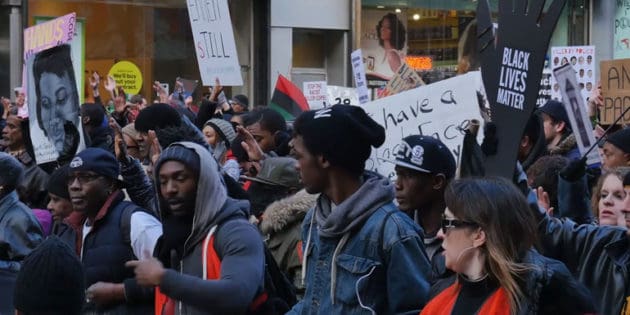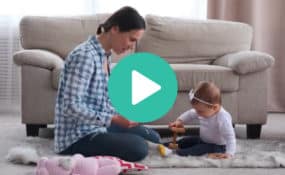If we want to raise our children to be compassionate people who can contribute to society as responsible citizens, then we need to find ways to talk to our children about some of the thornier issues that we struggle with in this country.
First of all, let me explain who I am. I am a white male trying to raise children in today’s world. I can’t possibly begin to understand what it must be like to be a black male trying to raise children in today’s world. I know that I don’t have to have the same conversations with my own children that a black man must have with his children, and I can’t even begin to understand what those conversations must be like.
Demonstrations, sparked by the killing of George Floyd, have left many parents, myself included, trying to figure out how to talk to their children about the resulting protests and the events that led up to them.
But how exactly do you do that? I’ll be honest and admit that I have been guilty of ignoring the issue of racism with my own children, because discussing the issue made me uncomfortable. But current events have made me realize that I can’t avoid talking about racism with my children any longer. In addition, with all the news coverage, my children were beginning to ask me about it, but quite frankly, I wasn’t sure what to say. They are young, and like most parents, my instincts tell me to try to shelter them from difficult situations.
So, What Should Parents Do?
First, you don’t want to avoid talking about the issue of racism simply because it might make you uncomfortable. The conversation is not new, and neither is racism. Therefore, we shouldn’t avoid talking about it. Most black parents don’t, have the option to delay the conversation. They are forced to have these conversations early, in order to prepare their children who might, very likely, experience racism firsthand.
Over the years, we have learned that one of the most valuable things white families can do to help demolish racism, is to educate their children about racism and about how to stand up for children who are faced with racism.
Research shows that even young children are aware of physical differences such as skin color. As a parent, it’s important to proactively talk to our children about surface differences in people such as hair, eye and skin color, while at the same time helping them understand that those differences are only that: different looks on the outside. It is important to stress to our children that we are all the same on the inside! Parents need to remember that especially with young children, a parent’s word is much more meaningful than anything they might hear from another child or even another child’s parent.
The more comfortable you are with the subject of racism, the more comfortable you’re going to be talking with your child. I recommend you do some research of your own first. There are lots of books that will help you understand the origins of racism. In my opinion, one of the best is “the myth of race” by Robert Wald Sussman. That book is a good place to start educating yourself.
It is important to remember that it is not racist to acknowledge differences in skin tone or other physical differences. Racism comes from the value and judgements that we place on those differences. I would also recommend you watch the video “Blue Eyed, Brown Eyed Experiment” done by one of the pioneers in the field, Jane Elliott. The experiment done in this video is especially meaningful for parents, because it was done by a schoolteacher of young children. It’s a great starting point for discussion with children.
When children are uninformed, they draw illogical conclusions. They are learning by what they see. It’s easy for children to think that bad things happen to black people because black people are bad. Only by talking to your children proactively can we as parents intervene before that happens.
One of the most powerful tools in raising an anti-racist child, is simply using the facts of history as a teaching tool. Familiarize yourself with our nation’s history, and then impart what you have learned to your children.
Call on grandparents in your family to share their personal stories about racism that they might have witnessed, or experienced firsthand. Share that history with your children and use it to help them understand the anger and frustration underneath the current, widespread demonstrations.
Encourage Conversation!
Children are likely to ask tough questions about race, many of which might be fueled by what they are hearing outside your home. They may say things that are sensitive and even embarrassing. However, don’t shut down the conversation because of this. Explore why they said what they said. Engage their minds and help them navigate their social encounters.
And finally, don’t be afraid to share your own feelings with your children. Let them know you are sad and angry about injustice when you see it. Teach your children those family values that you are striving to pass on to them.
- How To Talk To Your Children About Racism - July 7, 2020
- How To Talk To Your Children About Racism - July 7, 2020
- How To Talk To Your Children About Racism - July 7, 2020







